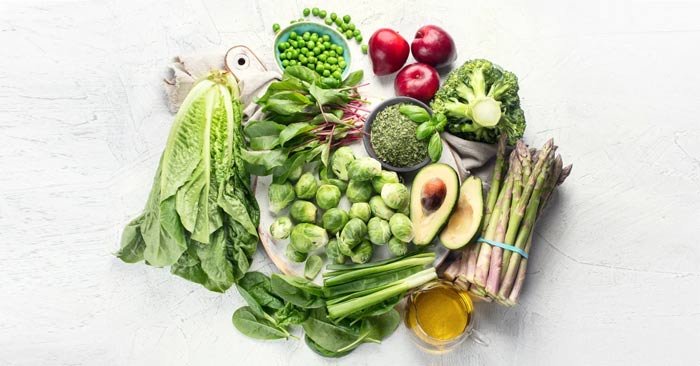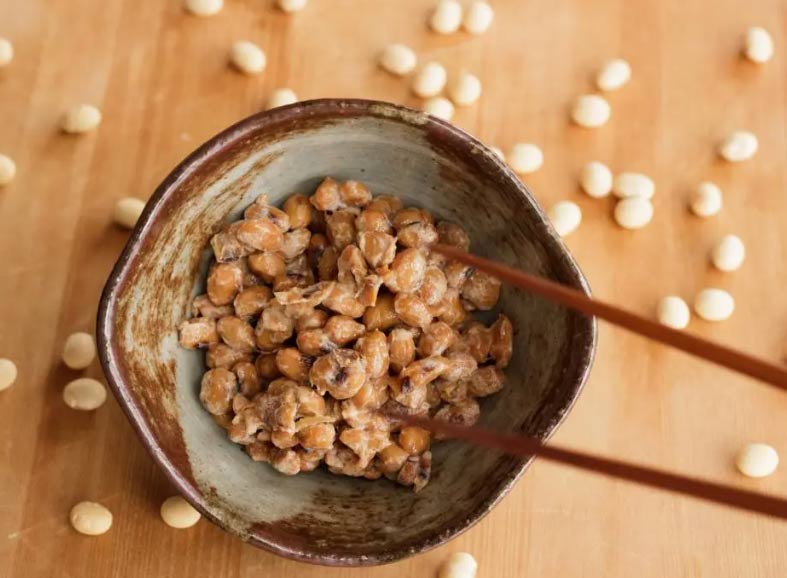Foods rich in vitamin K
You can get vitamin K from vegetables, including green leafy vegetables, and from animal sources, including some dairy products and meats. Here is a list of foods rich in vitamin K.

Vitamin K deficiency is a serious problem and can lead to a variety of health problems. Even taking less than the recommended dose over a long period of time can be harmful to a person's overall health and can lead to problems such as:
- Low bone density
- Heart disease
- Osteoporosis
- Tooth decay
- Easy bleeding or difficulty clotting
- Some types of cancer
- Vascular calcification
- Cognitive impairment
The recommended amount of vitamin K is at least 90 micrograms (mcg) a day for women and at least 120 mcg a day for men. Most people can easily reach this level by adding the foods below to a healthy, balanced diet.
Foods rich in vitamin K
There are two types of vitamin K: vitamin K-1 and vitamin K-2. Vitamin K-1 is more common in foods and is especially abundant in green vegetables and some plants.
Vitamin K-2 is found only in a few animal sources and some fermented vegetables, such as natto, a fermented soybean dish.
Here are some foods that are high in vitamin K. It is important to note that vitamin K content is measured per 100 grams (g) of food. Although some herbs, such as basil and thyme, appear to be very high in vitamin K, it is unlikely that a person would use such large amounts when cooking.
Foods rich in vitamin K-1
100 g of the following foods contain high levels of Vitamin K-1:
- Cooked spinach – 540.7 mCg
- Cooked Kale – 418.5 mCg
- Cooked green vegetables – 592.7 mCg
- Cooked green vegetables – 623.2 mCg
- Cooked beet greens – 484 mCg
- Raw Swiss chard – 830 mCg
- Raw dandelion greens – 778.4 mCg
- Cooked turnip greens – 518.9 mCg
- Broccoli – 141.1 mCg
- Cooked cabbage – 108.7 mCg
- Raw arugula – 108.6 mCg
- Dried basil – 1714.5 mCg
- Dried Sage – 1714.5 mCg
- Dried thyme – 1714.5 mCg
- Dried oregano – 621.7 mCg
- Dried oregano – 621.7 mCg
- Fresh parsley – 1640 mCg
- Dried coriander leaves – 1359.5 mCg
- Endives –231 mCg
- Chives – 212.7 mCg
- Raw watercress – 541.9 mCg
- Cooked Brussels sprouts – 193.5 mCg
- Red leaf lettuce – 140.3 mCg
- Green leaf lettuce –126.3 mCg
- Soybean oil – 183.9 mCg
- Mayonnaise – 163 mCg
- Margarine – 101.3 mCg
Foods rich in vitamin K-2
100 g of the following foods contain high levels of vitamin K-2:
- Natto – 939 mcg
- Foie gras – 369 mcg
- Beef liver – 106 mcg
- Turkey sausage – 36.6 mcg
- Chicken – 35.7 mcg
- German sausage – 31.2 mcg
- Salami – 28 mcg
- Pepperoni – 41.7 mcg
- Soft cheese – 506 mcg
- Blue cheese – 440 mcg
- Hard cheese – 282 mcg
- Whole milk – 38.1 mcg
- Bacon – 35 mcg

How to add vitamin K to your diet
Although most dietary guidelines do not currently distinguish between vitamin K-1 and K-2, it is best to provide your body with vitamin K sources from both types.
Most people who eat a balanced diet rich in whole fruits and vegetables will likely get enough vitamin K in their diet, especially vitamin K-1. One of the easiest ways to add more vitamin K-1 to your diet is to eat dark green leafy vegetables.
Vitamin K-2 can be more difficult to incorporate into a healthy diet because it is typically found in meat and animal products. Healthy gut bacteria produce some vitamin K-2, but the best way to ensure your body gets enough vitamin K-2 is to eat it. Common sources of vitamin K-2 include meat, liver, and some dairy products.
While meat and dairy eaters can usually find sources of vitamin K-2, vegetarians and vegans may be limited. A Japanese fermented soybean dish called natto is an excellent source of vitamin K-2.